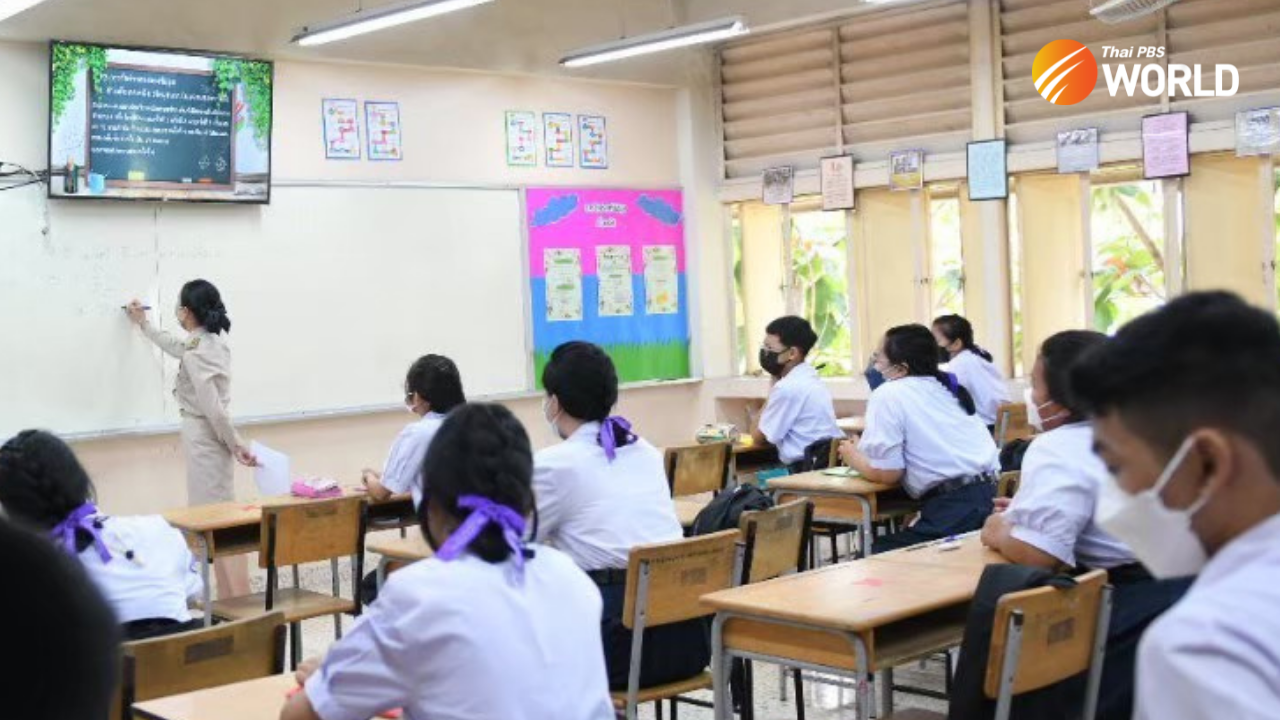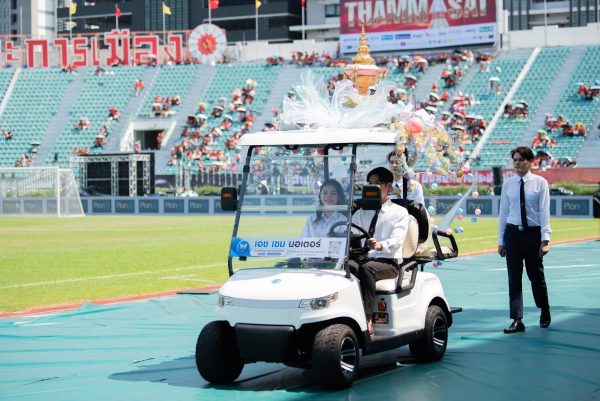Snack bars to night guards: Will reforms ease burden on Thailand’s teachers?

Noi’s school day starts at 6am sharp, when she arrives to set up the snack bar – adding to her already demanding 15-hour weekly teaching load. “I need to be there early,” she explains, “because I have to prepare the place and accept deliveries of food and snacks before it opens.”
Noi spends about two hours a day at the snack bar, also returning during the lunch break to serve students. Her story reflects a wider reality in the Thai education system, where the list of teachers’ duties runs very long. For Noi, it covers more than 400 tasks. Other teachers at her school have also taken on special assignments – including registration, supplies, administrative tasks and more.
A survey by the Equitable Education Fund (EEF) revealed that the average teacher spends 84 days per year away from their classroom handling other tasks.
Typically, more than half of these non-teaching days (43) are devoted to assessing their own performance, that of their school, and their qualifications for promotion. On average, they also spend 29 days on academic competitions and 10 days on training.
In a separate survey of teachers, 95% said they worked for more than eight hours a day. More than half (58%) added that they spent at least six hours a week on non-teaching tasks.
Calls have grown in recent years for teachers to be relieved of their extracurricular burdens so they can focus on their core job: the development and education of children.
The calls come after years of low education quality in Thailand despite the impressive budgets and resources dedicated to the public school system.
Last year’s academic performance of Thai students, as measured by the Program for International Student Assessment (PISA), fell to the lowest level since the country joined PISA in the early 2000s.
The results show that Thai children are falling behind their international peers in terms of educational competencies.
Education Ministry’s stance
Aiming to reverse that decline is Education Minister Pol General Permpoon Chidchob. On his orders, the Office of the Basic Education Commission (Obec) is now preparing to curb teachers’ non-educational tasks with a goal of keeping them in the classroom so they can spend more time with students.
“The burden of teachers’ extra tasks will gradually reduce,” said Obec secretary-general Thanu Wongchinda. “We are confident that teachers will be able to focus on their classes and help raise the country’s educational quality.”
Permpoon has also instructed relevant agencies to streamline the promotion process for teachers. The move follows loud complaints from teachers, who say they must spend unnecessary time preparing piles of paperwork to apply for a higher academic rank.
Thanu added that his agency will also relieve teachers’ burden of procuring school supplies by transferring the responsibility to local education area offices.
The Cabinet on January 23 also resolved to cancel, with immediate effect, teachers’ obligation to sleep at their school to protect its property. The resolution was issued shortly after a female teacher was attacked by a man during her non-teaching shift at the school.
Hopes not high
Prof Sompong Jitradup, an expert at EEF and a former lecturer at Chulalongkorn University’s Faculty of Education, is pessimistic about the moves to get teachers back where they belong in the classroom.
He believes teachers’ non-educational workload may be lightened somewhat – but not for long.
“Removing some tasks from teachers’ current job responsibilities will not solve the problem in the long run,” he said. “The problem, after all, is structural in nature.” He explained that the scope of teachers’ work had expanded because the Education Ministry operates with a centralized approach.
Decisionmakers at central agencies have issued policies and pushed projects with little awareness of how they affect teachers on the front line. “Some projects have become big burdens and provided only small benefits,” he explained.
Sompong added that the bureaucratic system is another thorn in teachers’ flesh as it requires them to compile numerous reports – which neither reflect educational quality nor aid teaching improvement.
Parichat Chaiwong, who helps run the Krukorsorn Facebook page, which highlights the problem of teachers’ duties outside class, wants policymakers to do more to address their unreasonably heavy workload.
“Many teachers are still forced to do all sorts of tasks unrelated to teaching, such as buying food ingredients, cooking students’ lunch, and doing paperwork,” she said.
Parichat, a teacher herself, said this problem is especially acute at small schools where staff and resources are very limited. Komson, a teacher at a mid-sized primary school, said he had no choice but to follow the policies of his school director. In the past, one such policy meant he had to take turns with other young male teachers guarding the school at night.
When a janitor was hired for nighttime security, a new policy supposedly negated the need for teacher involvement. However, another directive surfaced requiring him to resume night guard duty in exchange for financial compensation.
“I had to comply because I was not in a position to refuse,” he said. So he felt relieved that the government decided to remove the need for teachers to watch over their schools at night, pointing out that the role came with dangers. “Yes, we may be stronger than female teachers. But if intruders come armed, we won’t be safe,” he said.
Parichat agreed. She said teachers now hoped schools would recruit capable security guards to ensure the safety of staff and students.
Supawat “Kru Manow” Promtun, who runs the Facebook page “Everythingisteacher”, said the biggest worry for many teachers was non-teaching financial tasks such as supervising the lunch budget.
“There is a risk of making errors that could land them in trouble,” he pointed out.
Parichat echoed his concerns, highlighting the pressure many teachers face in signing off on tasks outside their expertise, carrying the risk of accountability for any mistakes or future issues.
“Remove the unnecessary burdens from teachers’ shoulders,” she urged, “so they can focus on their students.”
Sompong, however, offered a more pessimistic prediction. Citing his own experience, he said that even if some burdens are removed from teachers’ shoulders, they will likely be replaced with new ones.
By Thai PBS World’s General Desk






